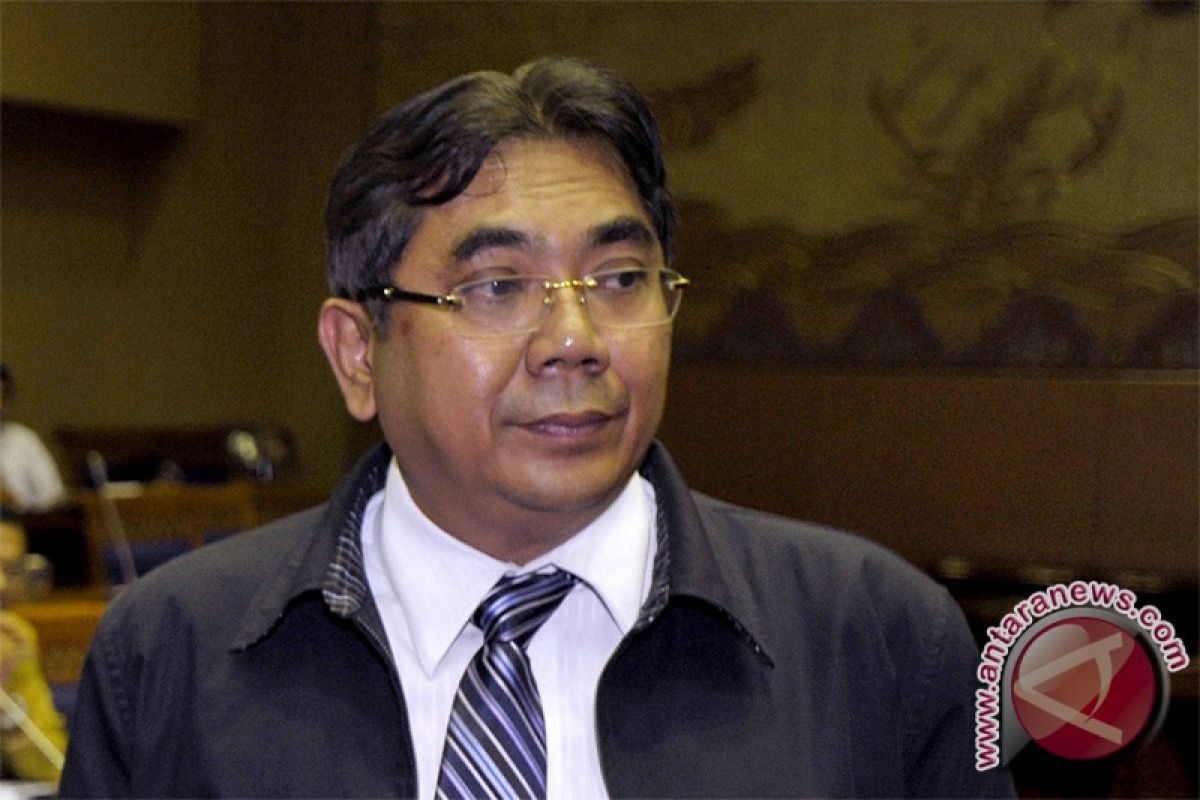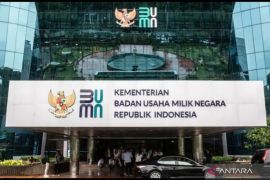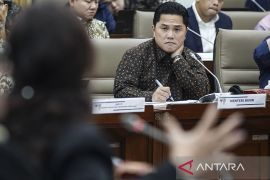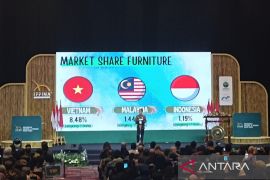The agreement was formalized in a memorandum of understanding (MoU) signed here on Thursday in the presence of the state enterprises minister`s deputy for infrastructure and logistics, Sumaryanto Widayatin, at the state enterprises ministry.
The SOEs involved in the agreement are PT Telkom Indonesia Tbk., PT Pelindo I-IV, PT Kereta Api Indonesia, PT ASDP Indonesia Ferry, PT Angkass Pura I, PT Angkasa Pura II, PT Pupuk Sriwijaya, PT Pos Indonesia, PT Kawasan Berika Indonesia, PT Semen Gresik, PT Varuna Tirta Prakasya, PT Bhanda Ghara Reksa and Perum Bulog.
Sumaryanto said the synergy would be carried out based on three strategies namely development of economic potentials through economic corridors, strengthening of national connectivity and strengthening of human resources capability and information technology.
"`Locally Integrated, Globally Connected` is the spirit of the synergy to increase Indonesia`s competitiveness in the business world," he said.
He said the national logistics sector has not yet been ready to meet economic liberalization in the ASEAN Economic Community (AEC) 2011 due to its lack of connectivity among transportation modes.
He said Indonesia must not stay idle to meet competition in the sector which is tighter especially after the implementation of AEC in 2005.
"In the next four years businessmen and national logistics network must become more competitive and able to reduce logistics costs," he said.
He said at present logistics cost in Indonesia reaches 30 percent of production cost and absorbed 24 percent of total gross domestic product.
Advanced countries which have so far become the yardsticks of economic progress such as the US or other developing countries such as Vietnam, Thailand, Malaysia and China have been able to reduce the cost to 10 percent.
The president director of seaport operator Pelindo II, RJ Lino, meanwhile said national connectivity had to be strengthened including "hard and soft infrastructures".
He said ILCS aims to create national connectivity to support efforts to achieve the three objectives of national connectivity namely connecting centers of growth, backward regions and isolated regions.
To implement it Telkom meanwhile will exert all its technological and information capability, he said.
Telkom`s president director Rinaldi Firmansyah said under the cooperation agreement his company would ease system of operation at ports.
"We have a network of telecommunications infrastructure in the form of backbone network that could be used to support system of communications and information to ease the flow of goods and services in Pelindo," he said.
The applications that have been made ready will make users of logistics service at home and abroad able to monitor and arrange flows of goods, documents and payments and manage assets such as ships, trucks, cargoes, containers more easily, cheaply and safely.
(T.R017/H-YH/HAJM/O001)
Editor: Priyambodo RH
Copyright © ANTARA 2011












